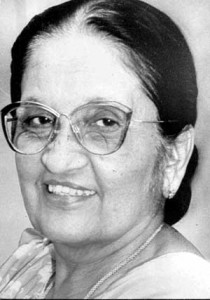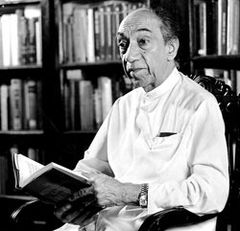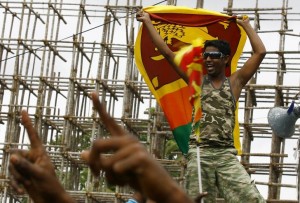Children of the 1977 Free Market Economy and their world without vision
“Throughout the centuries there were men who took first steps, down new roads, armed with nothing but their own vision” – Ayn Rand, Russian-American Novelist
Queueing for bread
Forgotten are the days when people waited in line for two to three hours to buy a loaf of bread; forgotten are the days when rice was not available on Tuesdays and Fridays, when rice could not be transported from point A to point
B; when one had to take the old bicycle tire to buy a new one, when the groom had to take the registration certificate to purchase the cloth for his wedding suit; when only two yards of white cloth were sold for “pansakùla” ceremonies for the Buddhist dead; when assaults, sometimes culminating in murder, were committed for a loaf of bread; when no more than one hundred and fifty guests could be invited and dined at a wedding ceremony. All the negatives of a closed economy were manifestly present in the real lives of men and women.
Capitalism was a bad word
Restrictions were imposed and vigorously enforced to facilitate a state-run, closed economy. The doctrine was more important than market and consumer realities. Capitalism was a “filthy” word and the “Business Acquisition Act”, a forerunner of the recent Expropriation Act which was passed by today’s Legislature, suspended over the economic environment like a toxic gas choking investments, both foreign and local. Super Minister Felix Dias Bandaranaike, who was acting as if he was the Deputy Prime Minister and reigning like a Gulliver among SLFP Lilliputians throwing his weight about, of course in contrast to today’s petty dictators’ uncouth mannerisms and unpardonable inefficiencies, somehow or other, managed to “get things done”. There were no scandals about the inefficiencies in the Education sector, nor in the Petroleum or Power sector; only flawed policies. The civil service, which became Sri Lanka Administrative Service, was still honest, learned and uncorrupt, yet not so creative but for a handful of officers.
A problem at the core
The problem was at the core. A doctrinaire approach by the politicians, especially by those leftists who manned the most pivotal portfolios led the country’s economy spiraling down a precipice. The myth of class warfare that they gave birth to was not merely confined to May Day slogans; policies enunciating the merits and demerits of the class struggle began to be implemented at the cost of common-sense-oriented economic principles. Jobs were scarce, foreign investments were not even heard of except those received from the then Soviet Union and the People’s Republic of China as outright grants. People were gradually getting used to the insufferable constraints imposed by the adverse economic conditions.
Gimmicks
Then the government started on another gimmick. They began holding a series of Commendation/Felicitation meetings throughout the country to pay tribute to the ‘services’ rendered by various leaders of their Party: from Maithripala Senanayake to T B Illangaratne to T B Tennekoon etc. This madness was stopped only when some bright guy in Horana, in the Kalutara district organized a parody event in honor of one incognito commoner, making the entire saga laughable.
However, a punishing economic crisis was the critical issue that the government of the day had to tackle. Despite having the so-called “golden brains” of the traditional left in their fold, there did not seem to be a way out, for they simply could not reconcile themselves to an open-market economy. Their blind adherence to doctrinaire Statism overshadowed common-sense.
Unheard of majority in 1977
The resentment of the people was waiting to be unleashed, and when it did, it exploded. The resulting UNP victory at the polls in 1977 indicated the depth of despair the average man had to endure. A four fifths majority was
unheard of in any multi-party democracy and that was what the United National Party led by J R Jayewardene received at the 1977 elections.
The energies were released; the shackles were broken and the gates opened not only in the arena of social change but especially in the economic sphere. The economic policies adopted by the Jayewardene government gave birth to the so-called free-economy from which Sri Lanka still has not turned back. Import restrictions were removed resulting in the availability of essential food items in the market; free imports paved the way for items which were previously not even heard of by the common man to be available in street corners. Trishaws, motor cycles, televisions, wristwatches, imported fabrics and what-not were in big demand not only among those who could afford them but also among the not so well-to-do folks.
Public investment
In stark contrast to the previous regime, the new government identified and pumped in public investments into the crucial sectors of the economy: housing, land settlement, the port, irrigation and education but not necessarily in that order. Private investor- confidence grew by the day; foreign capitalists began looking at Sri Lanka in a more favorable light; window-shopping tourists were a common sight along the Colombo streets.
For a generation that grew up waiting in queues for bread and rice, this phenomenon held a new hope and their expectations grew; the expansion of the private sector businesses started creating employment, the garment factories that multiplied in numbers on a monthly basis kept absorbing the unskilled labor force; mid-east labor market became a much sought-after pasture for domestics and semi-technical workers.
Foreign travel
For the first time in the history of Independent Sri Lanka, foreign travel that was the exclusive privilege of the moneyed-class became open to the ordinary man and woman.
That generation has gone through a process of tremendous change from the time it was born; economically it has realized that there is a very viable and more practical alternative system, if applied and practiced with appropriate regulatory constraints, that could harness the natural talents and skills of the population, and socially with the increase in numbers in the so-called middle-class, and its resultant upward climb they were assured of a “place in the sun” despite their respective social origins.
A fairy tale and a Tiger’s tail
It sounds like a fairy tale, does it not? Nevertheless, while these social and economic dynamics were in full swing, the country faced a terribly gloomy situation in the North. The causes of the Northern Tamil problem may be
discussed at length here, yet I would refrain from doing so in the interest of maintaining a balanced presentation of the parties involved. Yet, failure on the part of both communities, for whatever reasons, to reach a meaningful compromise has rendered this situation, even over two years after the cessation of hostilities in 2009, to utter hopelessness. Both the government and the Tamil leaders have been cornered into two diametrically opposite and extreme stances reminding one of what the “Tea-party” movement in the US, driven to its extremes by the rhetoric of the radio and TV talk-show hosts like the Limbaughs, Hannitys and O’Reillys, have done to the Republican Party in the United States.
Into the quagmire enters the Tamil Diaspora
Whether in the US or Sri Lanka, whenever there is a choice for majoritarian rule, more often than not, it is the “independents” consisting mainly of the middle-class that tip the scales in an election. Those “independents” always tend to choose a middle ground unless there is a wide and uncontrollable swing towards one direction, left or right. If this segment of “independents” keeps shrinking, it is an unambiguous sign of polarization in the constituency. We have seen this polarization along ethnic lines for the past decade or so and it got further exaggerated when the war was won by one party amid alleged commissions of human rights violations. The façade that a false sense of patriotism renders towards the winning majority party tends to conceal all the alleged misdemeanors during the time of war. Into this quagmire which is essentially internal in terms of birth, escalation and culmination, has entered a new actor in the name of “Tamil Diaspora”. Sri Lanka can no longer treat this malady in isolation of local politics.
Relations of the first family
The Tamil Diaspora has come to stay. This new global player-a class consisting mainly of professionals who are doing extremely well financially, especially in Western Europe and the United States and unlike those who man
our official diplomatic posts, barring one or two exceptions in Europe-are well versed in public relations, mass media behavior, lobbying of the right kind of parliamentarians, congressmen and congresswomen at the right time and at the right place. The Channel 4 episode is a triumphal example of their relentless maneuverings. The inevitable decline in the quality of top Foreign Service professionals in pivotal capitals of the world is hastened by the saturation of service by cronies and utterly incompetent relations of the first family.
The country is currently caught up in this vortex.
Children of the free economy
The children of the free economy are the ones who constitute the majority of this mix that is caught up in this whirlpool. They have got used to the availability of not only essential items, but also some luxuries that their preceding generation saw only on Hollywood screen. Despite the war being dragged on in the North, the consumer economy that the 1977 election gave birth to, has taken natural strides, pushing away the memories of hardships and economic manacles that gripped the country in the 1970-1977 era, into vague memory. With the advent of this new “economic freedom” came the attendant socio-economic-political setbacks too. “Open economy” literally opened the doors to corruption of unprecedented scale; it created a new class of “commission agents” whose primary function and motive was to make a “fast buck”. In this equation the politico became a sine qua non.
From santosum to bribe
This process escalated progressively on an unimaginably fast scale so that what was taken as “santosum” (reward) at the end of a deal in the seventies and eighties, became a pre-condition to the award of contracts and other political favors, especially after the dawn of the twenty first century and the present regime.
From 150 wedding guests to grandiose birthday parties
Having become victims of this crony capitalism, the beneficiaries and benefactors-the practitioners of this trade- began to nurture a system that is essentially corrupt and delusionary in practice and flawed in theory. The
availability of credit cards without pre-checks on creditworthiness, mushrooming of diners at every street corner to serve families whose husbands and wives both are employed to sustain an ever competitive life-style, availability of motor cycles at reasonable rates and on hire-purchase schemes, traditional “mala batha” (funeral meals) being served to hundreds through catering services, birthdays and anniversaries celebrated on grandiose scales; all these contributed to a fast-moving flow of living which their parent generation could not fathom.
Short term pleasures
This generation embraced the modern amenities of the on-going scientific revolution. In the illuminating pages of “The Discovery of India”, the late Pundit Jawaharlal Nehru described in the most lucid manner how the Indian community in the twentieth century, without understanding the inner content of this marvelous phenomenon called modern science, mistakenly identified cosmetic material benefits as the wonder of the day, bereft of real cultural values that sustain a civilization, they began to flow in the muddy waters of confusion and short-term pleasures, like rudderless canoes. Of course, Nehru, with a deeply felt sense of empathy and sorrow wrote about the circumstances which existed just prior to the arrival of Gandhi on the scene. In Sri Lanka today, it is the personal knowledge of the writer, almost in every middleclass and lower middleclass household, anything of gold or silver has been pawned to pay for the sustenance of a fake and unaffordable lifestyle.
This flow will not turn back. Yet it can get stagnant and murkier.
Willing partners in favour trading
In such a situation what can one expect? Whichever way one looks at, it’s either confusion or constriction one sees. Sri Lanka’s politicians have spent their usefulness in totality. They have become willing partners of this enterprise called “favour trading”. The government’s so-called development programs are being geared to facilitate vote-getting schemes. It was evident during the last two Presidential and General Elections , that the entire government party campaign was run at a very efficient level by those government officers at the grass-root level, namely the Samurdi Niladhari and Agriculture Extension Officer. These are the government servants that are physically responsible for government hand-outs to the needy recipients in each village. Instructions were issued from the campaign headquarters located at Temple Trees (President’s Residence) directly to these officers, by-passing even the MPs who were actually in charge of the electorate. This mechanism was fine-tuned and it worked almost to military timing. The Opposition Parties had no answer to this, nor were they creative enough to present an alternative program to win votes.
The children of the ’77 free economy were the givers and takers of this election machinery. In such a diabolical dynamic, what can the opposition parties do?
Clear vision
Since Independence, only in three election campaigns have the people voted for a clear vision. In 1947, the UNP offered a vision of “Free Lanka”, in 1956, Bandaranaike offered a vision of a “place in the sun for the common man” and ‘Sinhala in twenty hour hours’ and in 1977, Jayewardene promised a “Righteous Society” with prosperity and equality. All other elections were decided on “retail” political issues. Even President Mahinda Rajapaksa, the present incumbent, did not promise in 2005 to end the war. His platform was “abolition of the Presidential system”. A system he consolidated and further cemented by lifting term limits by the eighteenth amendment.
Visionary leader
The country today is yearning for a visionary leader who would offer an alternative to the present set of policies and programs. However, for the people to realize that there should be an alternative, the Opposition must be more organized and focused than it is today. The main opposition party, UNP is caught up in a leadership struggle that is eating into the very fabric of its core. The three most popular politicians in the country today, next to President Rajapaksa, are Karu Jayasuriya, Sajith Premadasa and General Fonseka, not necessarily in that order. Of them, General Fonseka is behind bars and the other two are treated as persona non grata by the UNP. But none of them have offered a clear vision to the country, on the economy, on the Tamil question, on corruption and nepotism, on education and youth. They need to come out with an alternative vision on all these segments and test their visions by way of trial balloons.
The children of the ’77 Free Economy are bereft of a leader, they are bereft of a visionary and they are bereft of a vision. In the words of Ayn Rand, the great Russian-American Novelist/Philosopher, we need a person armed with nothing but his or her vision.








